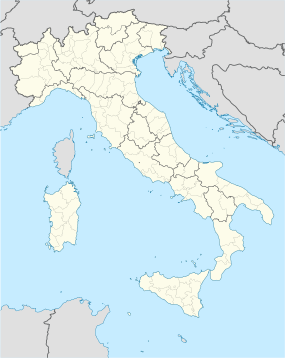Luna (Etruria)
| Location | Ortonovo, Province of La Spezia, Liguria, Italy |
|---|---|
| Region | Liguria |
| Type | Settlement |
| History | |
| Founded | 2nd century BC |
| Abandoned | 10th century |
| Periods | Roman Republic - Byzantine Empire |
| Cultures | Ancient Rome |
| Site notes | |
| Condition | Ruined |
| Ownership | Public |
| Management | Soprintendenza per i Beni Archeologici delle Liguria |
| Public access | Yes |
| Website | Luni National Archaeological Museum |
Luna (mod. Luni) was an ancient city of Etruria, Italy.
Luni is 4 miles southeast of modern Sarzana. It was the frontier town of Etruria, on the left bank of the river Macra (now Magra), the boundary in imperial times between Etruria and Liguria. When the Romans first appeared in these parts, however, Etruscans and the Ligurians were already in possession of the territory.
It derived its importance mainly from its harbour, which (according to the 1911 Encyclopædia Britannica) was the gulf on the Tyrrhenian Sea now known as the Gulf of Spezia or La Spezia Gulf, and not merely the estuary of the Macra as some authors have supposed. The town was apparently not established until 177 BC, when a colony of 2000 Roman citizens was founded there, though the harbour is mentioned by Ennius, who sailed from there to Sardinia in 205 BC under Manlius Torquatus. It was also being contested by the Romans as early as 195 BC, who were fighting the Ligurians and Apuans in the area.
The site was used as a base for the quarrying of marble from the marble quarries of modern-day Carrara, as the marble in that quarry is fine, and the harbour allowed the marble to be shipped to Rome easily.
The city was established in 177 BC by Publius Aelius, Marcus Aemilius Lepidus and Gnaeus Sicinius. An inscription of 155 BC, found in the forum of Luna in 1851, was dedicated to M. Claudius Marcellus in honor of his triumph over the Ligurians and Apuani. It lost much of its importance under the Roman Empire, though traversed by the coast road (Via Aurelia), and it was renowned for the marble from the neighboring mountains of Carrara, which in ancient times bore the name of Luna marble.Pliny speaks of the quarries as only recently discovered in his day. Good wine was also produced. Luna is supposed to have been mistakenly sacked by the viking leader Hastein, who thought it was Rome. He tricked his way in by pretending to be a dying Christian convert. The town was destroyed by the Arabs in 1016, and the episcopal see transferred to Sarzana in 1204.
...
Wikipedia

